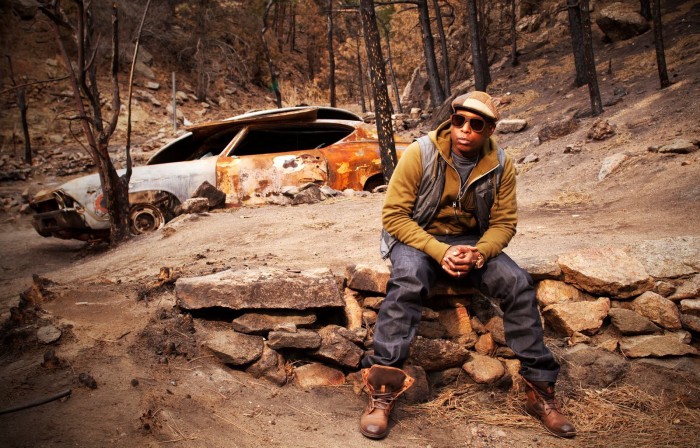
Full disclosure: I am an analog dude. I am “mature” enough to remember a time before the internet was prevalent in our daily lives. I dropped out of school to start my career before laptops replaced spiral notebooks. My first foray into cyberspace was visiting a chatroom on The Roots’ Okayplayer.com in 2004, and I learned a swift lesson in internet etiquette when I was trolled by anonymous fans for putting out an album they did not like, Beautiful Struggle. Also, I am aware that my use of the word cyberspace makes me sound like a character from the movie The Lawnmower Man.
Regardless of my lack of knowledge about how the internet worked, I have always maintained a large online fan base, due in no small part to the wonderful folks who run OkayPlayer. Early in my career they included me as a flagship artist on their site, placing me in the company of seminal acts like The Roots, Common, D’Angelo, Slum Village, Bahamadia and more. To this day I continue to be associated with this group of artists in the minds of many.
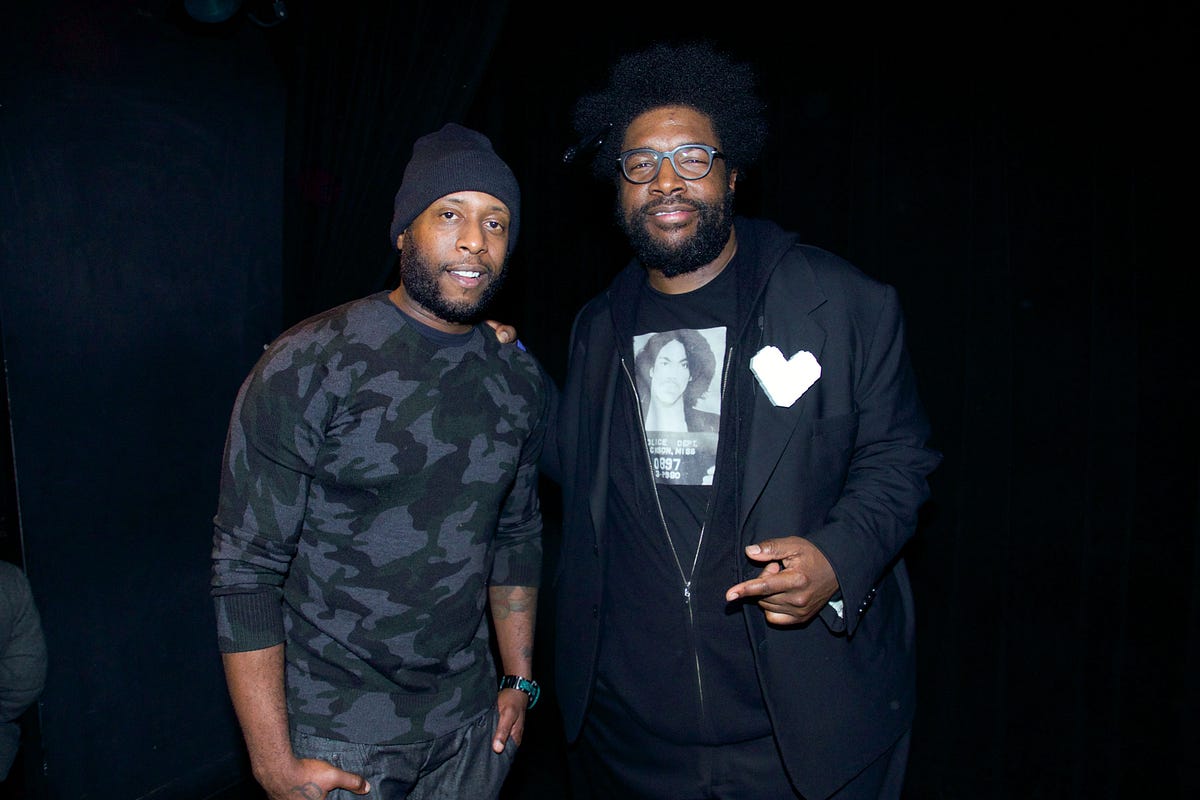
These associations, along with a good work ethic, a focus on music that has a message and a willingness to embrace new sounds while staying true to the sound that I’ve been successful with, helped me to remain relevant in an ever-changing market for a long time. However by 2008, it was no longer enough to let someone else control my online presence. As the music industry began to drastically decline, partially due to an ignorance about how the internet worked, it became clear to me that I’d better gain control over how I was being marketed and promoted digitally.
Myspace is what got me online in a real way. Their focus on music as a connector of ‘friends” made perfect sense for artists with an independent mentality, and I flourished there. Once I began to spend a lot of time connecting with fans on Myspace, I noticed my shows selling out more consistently. I was able to create an awareness around what I was doing that fans hadn’t been able to attain in a while. After the indie label that I started my career with, Rawkus Records, was swallowed and then eventually evaporated, the major labels I found myself doing business with had no clue how to market and promote me, so they would often not even attempt to. It’s easier to sell things that are placed in neat little packages and boxes, and no one could figure out what box to put me in. Myspace allowed me to reach my niche fans directly for free, rather than have some label invest hundreds of thousands trying to canvas the entire market.
In 2006, I dropped a collaborative project with acclaimed producer Madlib called Liberation, for free on my Myspace page, as a thank you for my truest fans. At this time, rappers were dropping free mixtapes where they were rapping over established hits, but hardly any artists signed to major labels dropped free albums. It wasn’t a thing. This free album galvanized the die hards and set the stage for 2007’s Eardrum, which featured guests as diverse as Justin Timberlake, Norah Jones, KRS-One and Jean Grae, which I also promoted heavily thru Myspace. But I knew that the social networking site would not be around forever.
After watching Warner Bros Records drop the ball on the follow up to my Train of Thought album with Hi Tek as Reflection Eternal, 2010’s Revolutions Per Minute, I decided that I no longer wanted to be associated with major record labels. In 2011, I got with Dru Ha and Noah of Duck Down Records— an underground label that I had been a fan of since a teenager that found ways to make money staying true to their aesthetic, even as the marketplace became increasingly fickle. Dru and Noah run a record pool for DJs called 1200 Squad, but they also were starting a distribution service called 3D. When I came to them to ask them to help promote the singles I was planning to release thru my newly-formed label, Javotti Media, they suggested allowing 3D to distribute the album. It was called Gutter Rainbows. It cost me 20,000 dollars to create, it dropped in February of 2011, and by May of that year I had tripled my investment.
I had been a professional musician for 14 years at that point, but never had I seen money from record sales hit my bank account so quickly.
Part of the reason it took me so long to take control of my financial destiny is because I believed in the traditional way that the music business was run, which was to let the managers manage and let the labels do what they do while I just made art. For years I coasted on my ability to perform on stage or get a new deal when money got low, always trusting lawyers, managers, accountants and label reps to have my best interest in mind. Making the initial investment for Gutter Rainbows myself while simultaneously removing several hands from the pot allowed me to increase my profit exponentially and to receive it almost instantly. Gutter Rainbows is still not one of my most famous albums, but it is one of the few that I saw an immediate profit on.
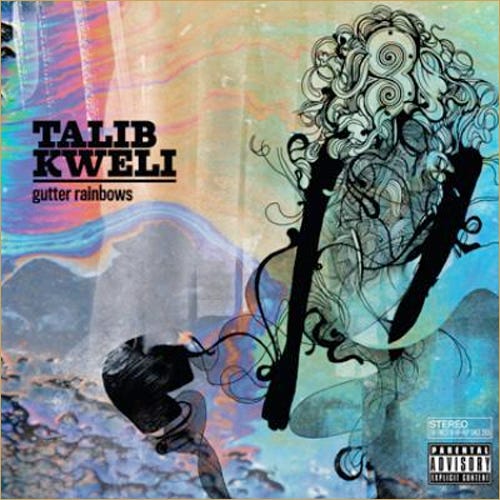
Before starting Javotti Media, my former independent label that I started with my old manager Corey Smyth, Blacksmith Music, had entered into a distribution deal with Caroline Distribution. I created Javotti Media, named after my grandmother Javotte Greene, after being frustrated with how Blacksmith Music was being run. A lot of money was being spent that wasn’t being accounted for, and I ended up in debt with Caroline. In 2012, Corey and I folded Blacksmith Music and Javotti Media took on that debt. I continued to work on the album I originally signed to Caroline for, which was Prisoner of Conscious, and in May of 2013 it dropped on Javotti Media/Caroline. Prisoner of Conscious had taken four years to create and featured Curren$y, Kendrick Lamar, Melanie Fiona and others. The month before its release, I spent tens of thousands promoting a single to radio, “Come Here,” featuring Miguel. It was a modest hit, reaching 1000 spins a week for a couple of weeks before it fizzled out. Had I spent more, it would’ve been played more, but I wasn’t sure that radio plays would translate to album sales for me, especially without having a video with Miguel in it.
In my experience, you shouldn’t spend money promoting a single unless you are sure it has a chance to compete on radio, but Miguel was very popular at the time so I took that risk. Urban radio promoters have elevated their payola game to a place where you must pay them anywhere between $15,000 to $100,000 to get a single played. No one takes any risks on singles anymore which is why many singles end up featuring the same four or five hot artists. While Miguel was very gracious in the recording of the song and a pleasure to work with, his day-to-day team didn’t seem to have the same respect for me that he did. They consistently ignored emails from me and my team, kept me away from Miguel and generally worked against me.
After a year, I eventually used some of my clout to get someone I knew to get them to sign off on single rights, but they still refused to let me do a video with Miguel, which killed the single. Every single needs a visual in this day and age. At the time, Miguel had his own hit single, plus songs with Mariah Carey and Kendrick Lamar that were bubbling. It seemed like his people felt like having him in a video with the underground, “conscious” rapper wasn’t the type of branding they were looking for. I ended up spending about $20,000 for a fantastic, hand drawn video from director Galen Petersen to accompany the song, but without Miguel in the video, it never quite made it to 106 & Park, a trendsetting video show on BET which, incidentally, has recently been cancelled. Because of the initial recording debt I racked up while with Blacksmith and the “Come Here” spending, I didn’t see the profit I saw with Gutter Rainbows, but I enjoyed working with the Caroline folks. I signed a deal with them to continue distributing Javotti Media content.
At this point I was running my business completely independently. My good friend Donna Dragotta and I spend hours running Javotti Media from the kitchen of my Brooklyn apartment, and I learn new things about this business daily. One of the key factors that helps us create and maintain a buzz without major label marketing dollars is, ironically, my online presence. By being early on Facebook and Twitter I’ve amassed about a million followers each on those networks. I am pretty good on Tumblr and proficient on Instagram (I could be better there). They say a picture is worth a thousand words, and while that is true, it is a dangerous notion for the writer. Anyone can take a beautiful picture on a smartphone but not everyone can use words to create a beautiful picture. This is why I find myself more active on Twitter, and now Medium. There are other platforms like Vine and Snapchat that can help, but hey, I’m only one guy.
Having a lot of Twitter followers is great for the ego. A blog once called me the king of “Black Twitter” for my ability to use my Twitter feed to create social discourse. So that’s nice. However, having all these “followers” is deceptive because while it makes me culturally relevant, it doesn’t translate into actual record sales. This is a generation that would much rather stream music than buy albums. I understand why consumers love streaming over purchasing albums, but they are mistaken when they think it is beneficial to the artists. I see what I make from streaming vs actual sales and theres no comparison. I make relatively nothing from streaming. For me to make the the buck I would make from one purchase of a song through streams, a fan would have to stream that same song almost 150 times.
If you are an artist with major marketing dollars behind you, then streaming may work out better for you in the long run, but if you are indie, like the vast majority of artists are, betting that you will continue to make money off someone playing a song of yours twenty years from now is a fool’s bet. A true fan will understand that streaming should enhance the sale, not replace it. This could be the sale of an album, a t-shirt or a concert ticket, but there should be some form of support. Unfortunately, having this understanding requires high moral fiber and an unusually acute awareness of how the record business is run. When I was coming up pre-internet, you had to own an album or two to consider yourself a fan of an artist. Now, someone will call themselves my biggest fan because they’ve seen one of my videos on YouTube for free. I can’t make this up, people come up to me all the time saying things like this.
On the flip side, it’s beneficial for new, unproven artists to take advantage of all platforms to be heard, Spotify included. A new artist needs to be wherever the ears are. I understand that in my twenty years of experience, the sales history and the cultural currency that I’ve amassed allow me to be broader in my thinking when it comes to streaming. So while my group with Res, Idle Warship, was the first act to ever release music on Spotify before it was released commercially, I now prefer to drive all my traffic back to me.
So the question for the artist who is making a living from their art is: how do you monetize cultural relevancy?
It’s generally agreed that this is a problem for the artist, not the consumer of art, to solve. To find the answer I began to pay attention to indie artists with integrity who still make a good living, and I found myself paying attention to comedians. When Louis CK filmed a stand-up concert and made it available for stream and download on his website for $5, he made a cool million and gave half of it away to charity. I thought it was a genius idea, but when I tried to apply the realities of releasing a hip-hop album thru this kind of platform, the task seemed daunting. Louis CK comes up with jokes in his head and delivers them solo, on a microphone to an audience that is paying for seats. His only costs were probably the filming, the streaming and getting the website built, but the money he made from the concert could have probably covered these things. Louis’ hit show on FX and the success of his past comedy specials did the marketing for him, so he didn’t have to spend a lot of money in that department. He had no producers to pay, samples to clear, studio time to pay for, engineers, musicians, etc. There are no royalties that he has to pay out to anyone once the product is released as well. I scrapped the idea of being a hip-hop version of Louis CK, until singer/producer Ryan Leslie tracked me down to share an idea with me.
When it comes to being tech savvy, Ryan Leslie is the opposite of me. A Harvard graduate, he came to fame in this business not just for his singing and producing skills, but for YouTube videos where he would share his creative process with his audience. He has remained ahead of the curve when it comes to figuring out how to monetize cultural relevancy, and once he realized that artists are shut out of the analytics that show us who buys our art and where, he began to think of a way to collect that information. If Amazon, Google and iTunes can have access to our fans’ emails and spending habits, why can’t we?
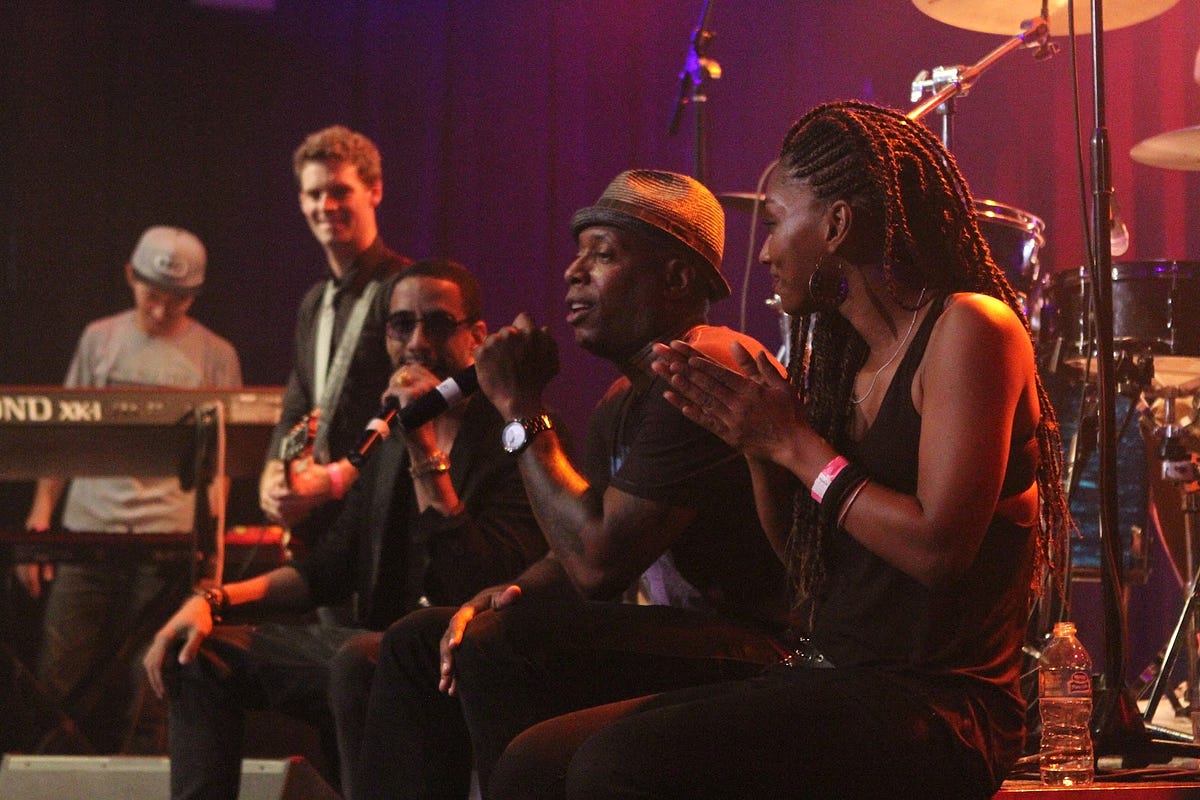
Ryan and his Disruptive Multimedia team built a website, RyanLeslie.com, where Ryan’s fans could buy music directly from Ryan, no middle man, as long as they provided their contact info. Any artist can use a service like Tunecore to sell digital music on iTunes, or go thru a distribution company to sell physical products to stores, but you are giving up a hefty percentage to do that, and you will not have access to the emails of those who spend money on your art. At Ryanleslie.com, Ryan is retaining 100% of the profits he makes from his art, and he can contact each person who spent money with him directly. In fact, as he was explaining this to me, I watched Ryan receive a sale direct to his iPhone and then call the fan up and thank him for his purchase on the spot. It was revolutionary. Isn’t this what we all say we want?
In the fall of 2013 Disruptive Multimedia set up a similar site for me, Kweliclub.com. Even though I had just dropped Prisoner of Consciousthrough Caroline Distribution, the excitement of cutting out the middleman was too much for me to bear and inspired me to record an album called Gravitas. Recorded mostly in amphitheater locker rooms around the country while I toured with Macklemore and Ryan Lewis, Gravitas was an album that spoke directly to the freshly-independent mind state I was in. Seeing Macklemore and Ryan Lewis’ incredible success as an indie act was also a motivating force, and by December of 2013 Gravitas, featuring Gary Clark Jr, Black Thought, Big K.R.I.T., Raekwon the Chef and more, was available for digital sale at one place in the world, Kweliclub.com.
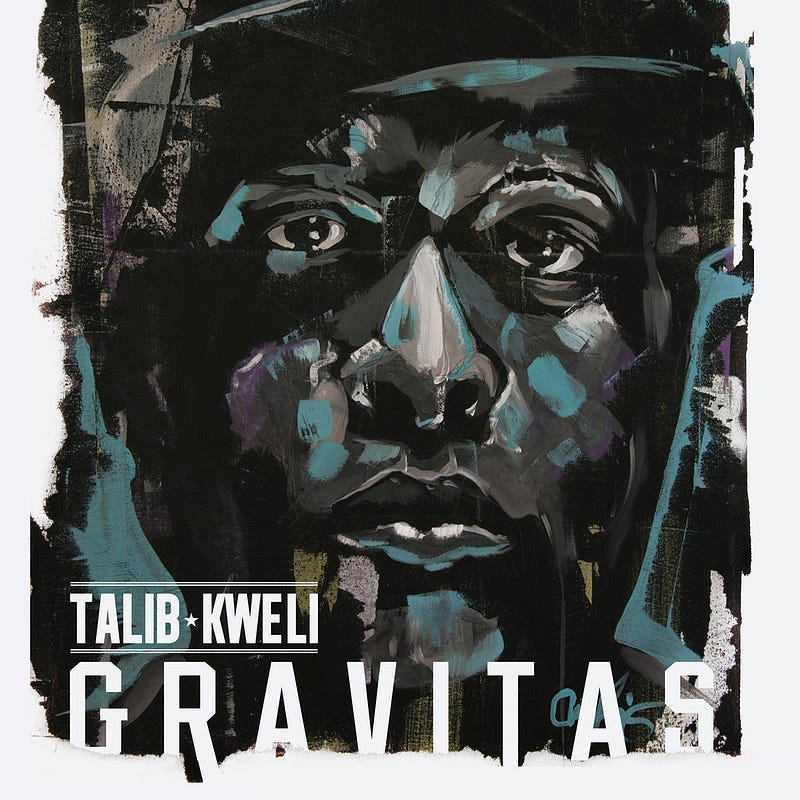
Gravitas cost me about $30,000 to record, but the demand for the physical was so high that I ended up doing a deal with Fat Beats Distribution that gave them the right to press up CDs and vinyl. The advance I received from Fat Beats coupled with the pre-orders of Gravitas on Kweliclub.com covered the initial recording costs, and all monies made from release date on was profit. To not have to wait months to profit on my art, to see profit the day of release, was a first for me. It was like a high, I felt unstoppable. As liberating of a feeling this was, it soon became clear to me that without marketing dollars or some sort of incredible marketing idea, the majority of my fans would never know the album existed. I filmed a couple of videos for promotion and I tour constantly, which gave me an opportunity to talk the album up in front of audiences all over the world, but there are so many artists competing for the eyes and ears of music consumers that it’s hard not to be swallowed up by all of it.
In February of 2014, 2 months after the digital, the physical for Gravitas was released. To make fans aware, I hired a marketing firm to get some press and TV and filmed a couple more videos. Sales continued to trickle in, the song “State of Grace” became popular in activist circles and was nominated for a BET award, but for the most part, most of my fans are still unaware of Gravitas. While consumers say they want to support artists directly, we all respond way more to products that are heavily marketed to us, even if that response is to be vocal about how what you don’t like while refusing to support what you do.
There was a time, pre-internet, where diversity in hip-hop music was represented in the mainstream. Fans of what is dubbed “true hip-hop” could find it on the radio and TV. Once the internet became dominant in our lives, these fans realized they didn’t have to sit through commercials and songs they didn’t like, they abandoned radio and TV a a source for hip-hop. As a result, major labels stopped spending money promoting this kind of hip-hop altogether. Now that marketing dollars are only spent on hip-hop that appeals to the lowest common denominator, many of these fans do not have the know-how or the energy to find alternative ways to receive the music that speaks to them.
They complain about what the radio plays and insist that nothing good has come out since the 90s, rather than take responsibility for seeking out music they can relate to.
Still, it is not their fault, they don’t know any better. It remains my responsibility to build the better mousetrap and adapt to the marketplace, or die. So in September of 2014, I put Gravitas for sale on iTunes, where 90% of people who still see the value in buying music actually buy their music from. I like working with iTunes, they make buying music easy, and I buy most of my music from them, even if I buy the physical as well. iTunes takes 30% off top, but I was still able to buy some flights and Christmas presents with the money from the fans who bought Gravitas from iTunes, so thank you all. Now, if you bought Gravitas from Kweliclub.com not only would I receive 100% of the profit, but I would have your email and I could thank you directly. First, I have to find a way to get the audience used to coming to me directly.
Right now I truly appreciate the space I’m in. There are no guarantees when you make art for a living and the unknown can become your inspiration. I have no idea where the next dollar is going to come from and it’s exciting for me to try and figure it out. I feel like I’m on the frontier, panning for gold. Not knowing where the money is coming from makes it all the more sweet when a plan comes together. This makes me work harder and surround myself with like-minded folks who see the vision. I now work with several artists on Javotti Media, and while I can’t guarantee riches for any of them, I can guarantee that by following my lead they will be happy and proud of the living they are able to make by being true to themselves.
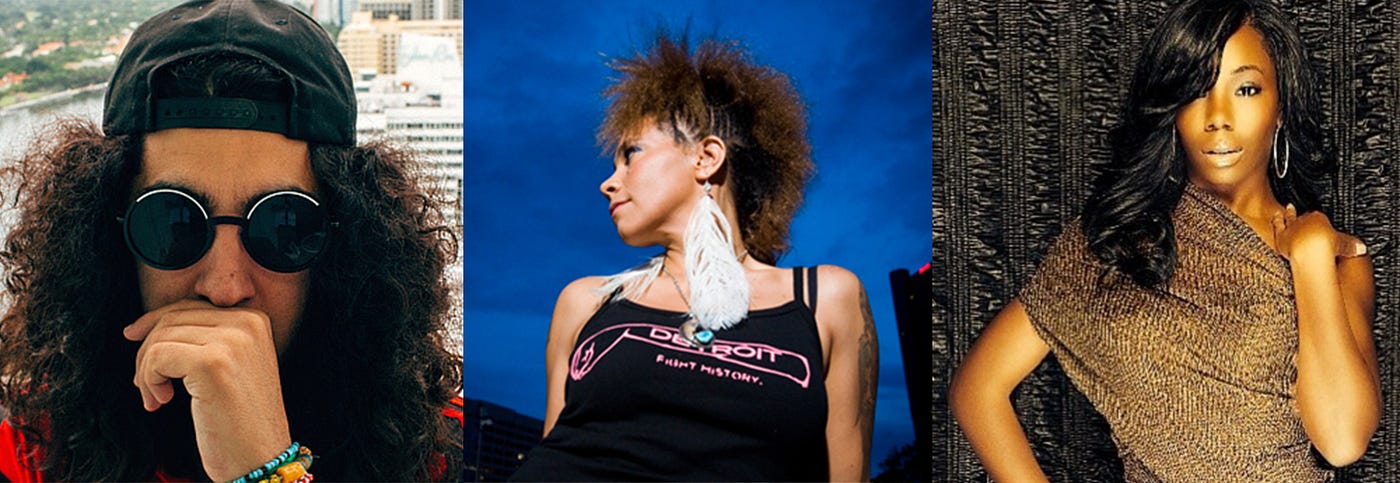
I’ve also learned how to carve out many different platforms that allow me to constantly present new music. In 2015, Javotti Media will be partnering with Caroline Distribution to release my next solo album Radio Silence, featuring production by Nottz, Alchemist, Q-Tip and more. We will also release the debut album from renowned poet Jessica Care Moore called Black Tea: The Legend Of Jessi James and an album by one of my favorite new MCs, NIKO IS from Rio DeJaneiro by way of Orlando. NIKO IS is also releasing a project with Javotti Media/Colours Of The Culture called Brutus on February 3rd, which is a follow up to his free mixtape we released last spring called Good Blood. Good Blood was one of three free mixtapes released by Javotti Media in 2014, including a group effort called The Cathedral, hosted by Affion Crockett, and Million Dollar Baby by K’Valentine, a talented female MC I am currently mentoring out of Chicago. Lastly, I formed an artist collective with Pharoahe Monch and 9th Wonder called INDIE 500, and 9th and I will be releasing an album together thru Javotti Media/Traffic late 2015. I am also looking forward to continuing to find ways to work with Dru and Noah from 3D, they have a great operation.
Hopefully, Kweliclub.com can make supporting what I do directly easier for the fan. Kweliclub.com will continue to expand and become one-stop shopping for all my fans. I will curate there and add all types of content. I will sell merch and concert tickets there, like for my upcoming spring 2015 tour with Immortal Technique. Kweliclub.com will be a store, an online magazine and a place for my fans and friends to connect with each other. For the members of Kweliclub.com that are already down with the team, I salute you and I welcome your suggestions. For everyone else, get down with us and enjoy the ride! The future is now, and we are the new leaders.
If you enjoyed reading this, please click “Recommend” below.
This will help to share the story with others.

Jamar King
Thoroughly enjoyed this very well thought out and comprehensive essay of thoughts on the past and the plight of great music. Thank youn